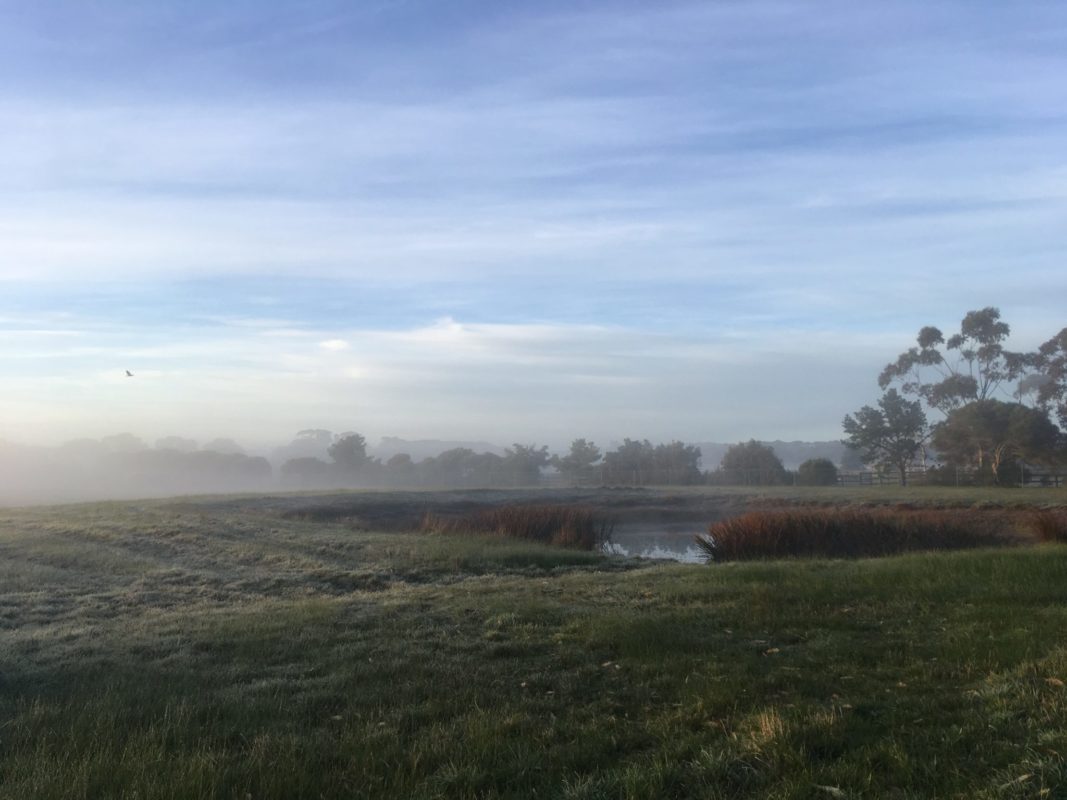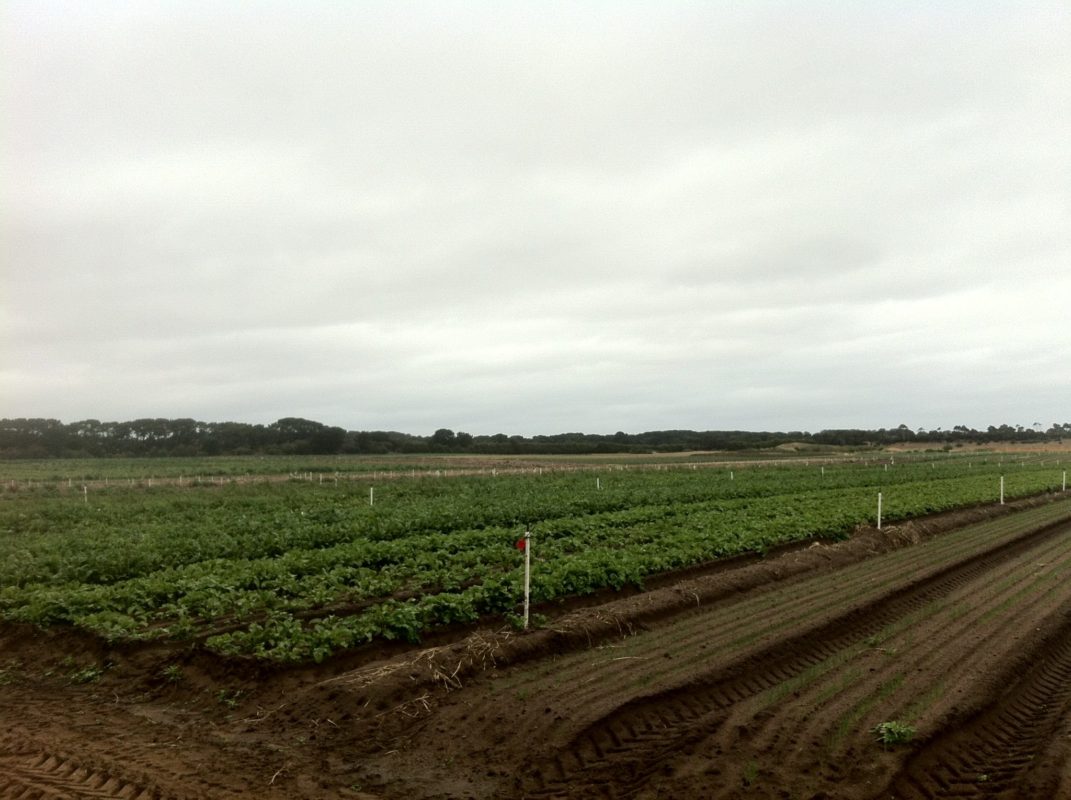A fortnight ago Rach and I were really busy, and we didn’t find the time to make a blog post. So to make up for that, this one will be super special and full of information on our Paddock to Plate farm tour we participated from Monday 23rd March – Wednesday 25th March.
The Paddock to Plate farm tour was a collaboration between the Mornington Peninsula Shire Council, Westernport Catchment Management Authority, South Gippsland Landcare Network and Bass Coast Landcare Network.
The tour itself gave farmers from Somers to Bairnsdale the opportunity to have a look at how others farms are producing and marketing their produce. The Paddock to Plate tour was full-up with 8 farms seen in three days across multiple Local Government Areas (LGAs).
We started the tour at 8am on the Monday, and had a big day.
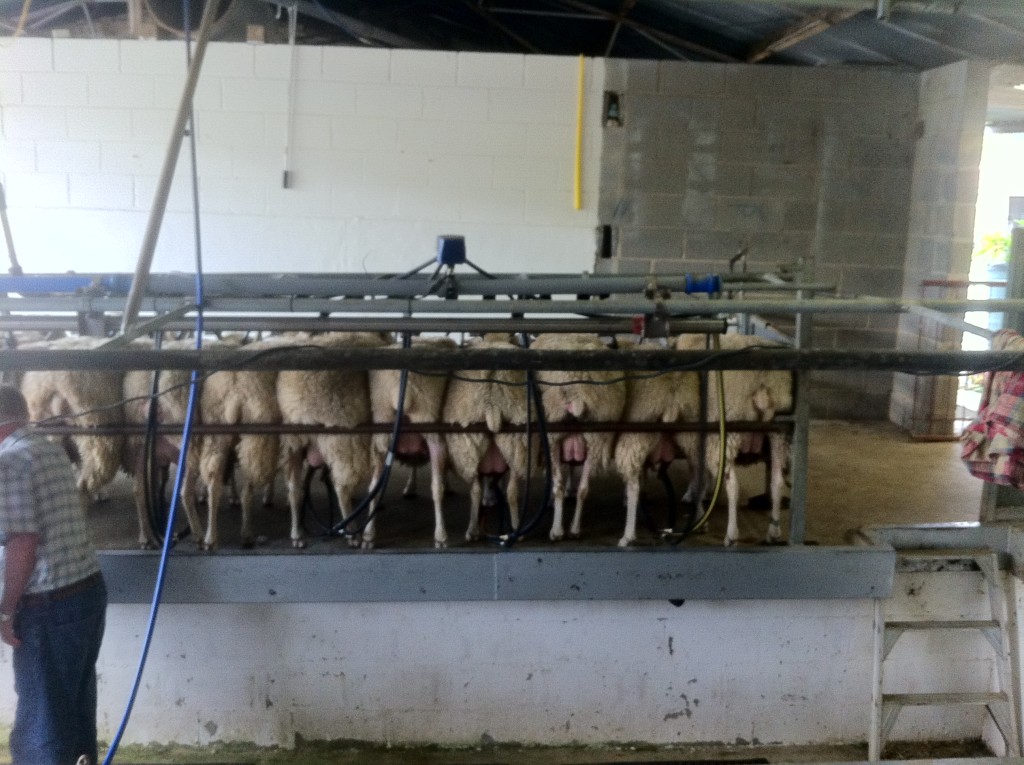
Prom Country Cheese. The Braddon family have expanded Red Hill Cheese, with PCC producing sheep milk only. Located out in Moyarra, Gippsland we were taken around the property by the tour leaders. When we got back to shop, we were given cheese (yum!) and a talk with the Braddons about their story and the challenges that they’ve faced.
Mornington Peninsula Avocados with Avocado Steve in Shoreham. Apparently the avocado trees use between 200 and 400 litres of water a day, and the avocados take over a year to develop so there are two crops on the tree at any one time! If the avocado catches the eye of a packer, then it is discarded or put in a lower category (which receives a lower price for the fruit). The focus is on top quality avocados.
Hillock Downs – Eddie and Sally’s farm producing beef in Rye. After our tour, we had a magnificent dinner prepared by a cook and using local ingredients including the on-farm beef as well as.
On Tuesday we left early to visit Richard Hawkes’ predominantly potato farm in Boneo. Richard is a young guy who opened up a farm gate to sell produce directly. He sells his potatoes and some other vegetables for only a little more than he sells them wholesale, which means customers keep coming back. It was interesting to hear his thoughts on pricing (and how he believed that he was better off charging a little less to get people through the door each week). I found it fascinating listening to how he deals with his father (who was a large scale potato farmer) on a day to day basis.
Afterwards we caught the bus to Tarago Cheese, a dairy and cheese making operation based in Gippsland. These guys have continued the family operation successfully with over 30 employees at varying stages of the business. They are vigilant about food safety – particularly with what happened to Jindi Cheese. I was really interested listening to what the owners thought about the changing demographics and the change in the taste for cheese. With more money being spent by younger Australians (ie under 40), the company has been trying to tell their story better and produce cheeses that taste nicer to a younger palate.
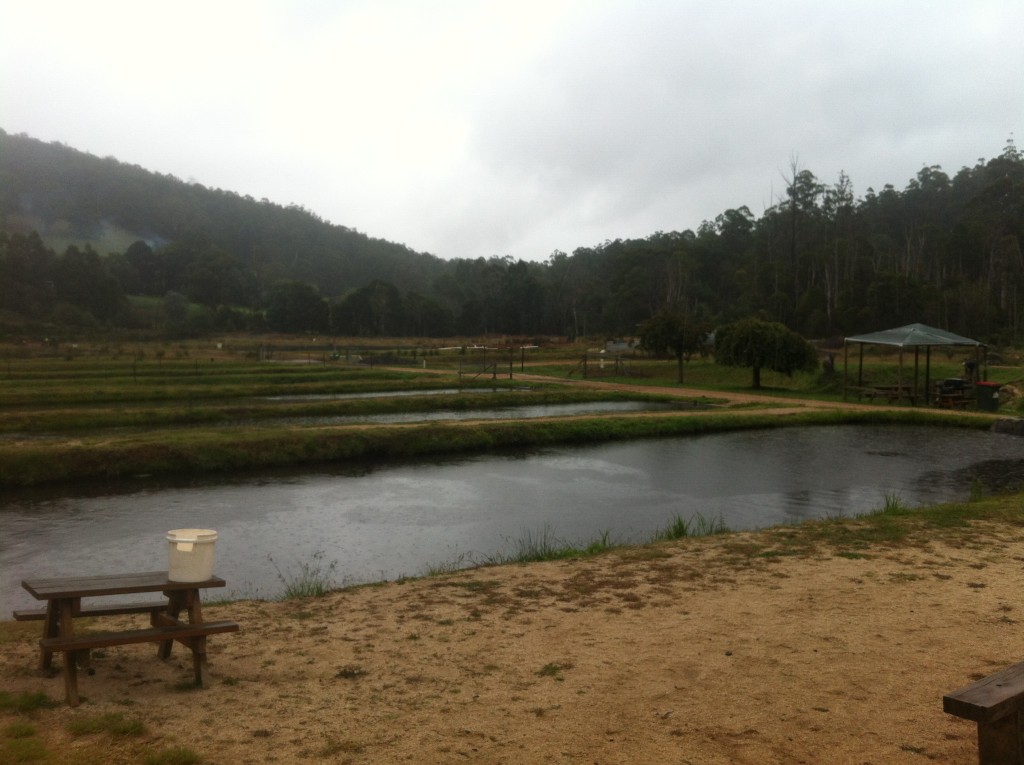
We finished the day at the Alpine Trout Farm. Mate was a real character, showing us around some of the property (from the fish ponds to the processing facility). Unfortunately they had just had a tree fall on their hatching building which was putting the whole operation in jeopardy! I found some of Mate’s insights into the legal and insurance side of things interesting, and also how the Alpine Trout Farm was able to secure large amounts of government funding to get the processing facility off the ground. Mate and his family bought the property on a whim – they were just driving through several years ago and stumbled on the auction. Considering the success that they have made at the Alpine Trout Farm it gives me confidence that others can just dive in and make a success of a farming enterprise. Their fish was absolutely phenomenal so I highly recommend buying it when you can.
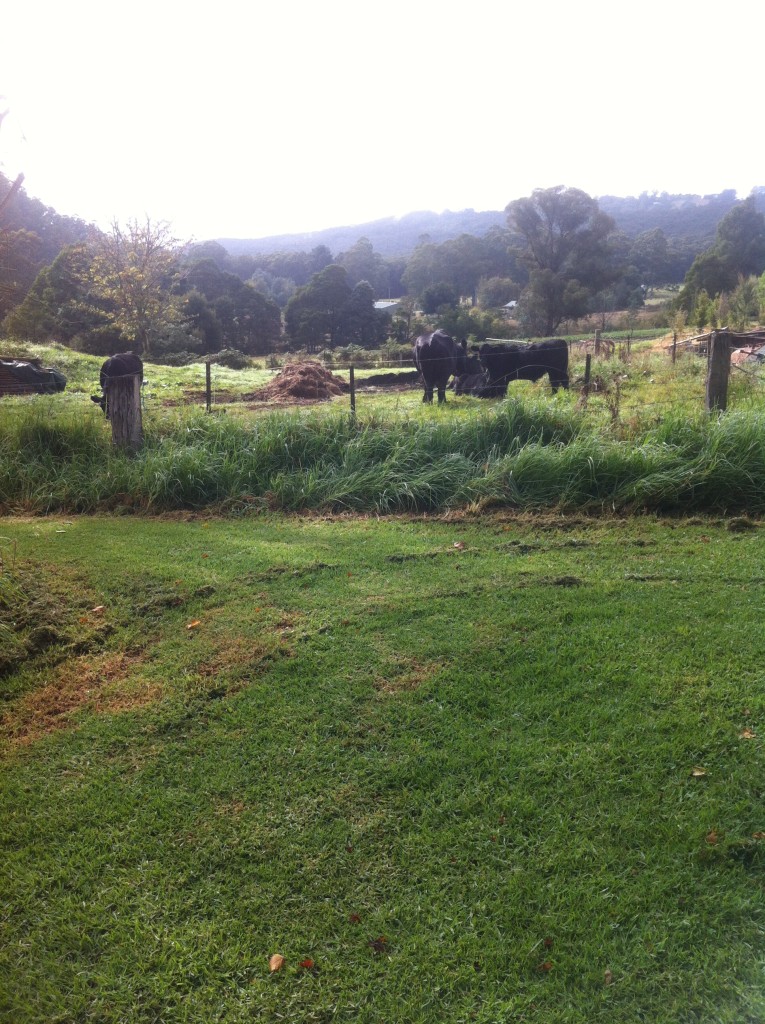
On the final day we visited Baw Baw Organics, which is located quite closely to the Alpine Trout Farm. Liz grows a range of fruits and vegetables on her property. She is relatively small scale, with only a few acres under cultivation, but she tends to rotate the cultivated area over time which gives the land a rest so that it can regenerate. Liz is focusing on providing good quality organic fruit that is in demand by the market, including a weekly veggie box scheme. Apparently pears are the fruit to grow for good returns! Liz started off a few years ago with a friend, and sold their organic produce out of the back of their ute. Now they’re large enough to be looking for a new selling spot out in Warragul (I think!).
We then travelled to Elderslie Organics, an organic dairy and egg farm. Peter and Wendy produce organic milk for the True Organic Milk Coop and Wendy is on the board of directors. It was great to hear that the coop continues to grow and is providing a good opportunity for farmers to produce milk organically. Elderslie has included poultry into the rotation, with 7 chicken caravans (just an old caravan modified for poultry) and 2 maremma guard dogs per caravan. With about 1400 chickens, the farm is busy with milk and then selling organic eggs to Melbourne restaurants. Elderslie has been really successful at integrating new ideas, moving with the market and still focusing on what they do well. I was very impressed!
Unfortunately I cannot provide more specific information because lots of the juicy stuff was shared in confidence and could affect the businesses that were so kind to share their experiences. Suffice to say it was a great three days with some wonderful people!
